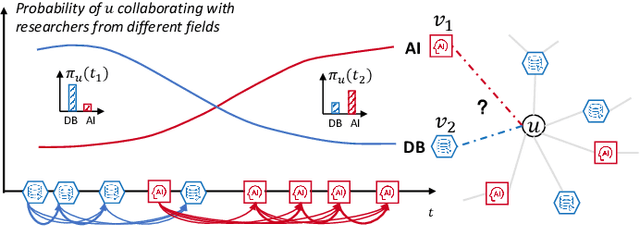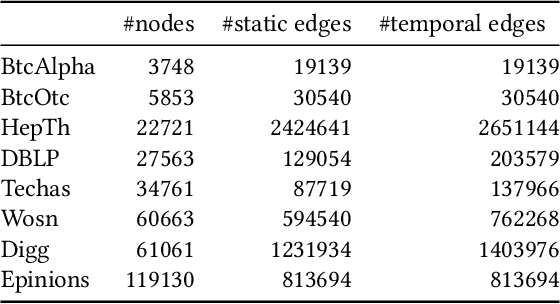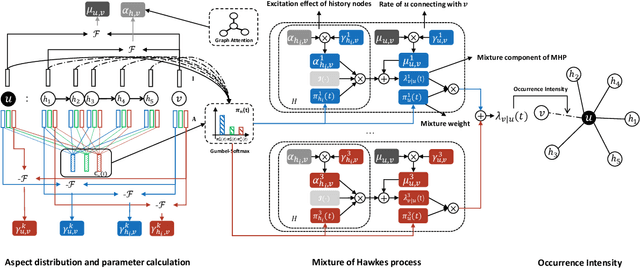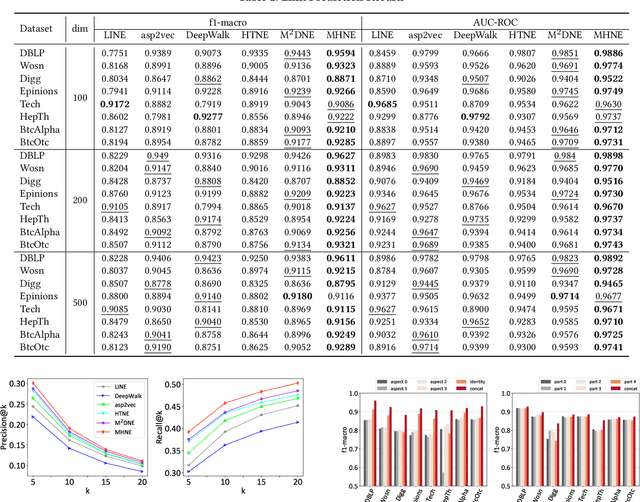Multi-Aspect Temporal Network Embedding: A Mixture of Hawkes Process View
Paper and Code
May 18, 2021



Recent years have witnessed the tremendous research interests in network embedding. Extant works have taken the neighborhood formation as the critical information to reveal the inherent dynamics of network structures, and suggested encoding temporal edge formation sequences to capture the historical influences of neighbors. In this paper, however, we argue that the edge formation can be attributed to a variety of driving factors including the temporal influence, which is better referred to as multiple aspects. As a matter of fact, different node aspects can drive the formation of distinctive neighbors, giving birth to the multi-aspect embedding that relates to but goes beyond a temporal scope. Along this vein, we propose a Mixture of Hawkes-based Temporal Network Embeddings (MHNE) model to capture the aspect-driven neighborhood formation of networks. In MHNE, we encode the multi-aspect embeddings into the mixture of Hawkes processes to gain the advantages in modeling the excitation effects and the latent aspects. Specifically, a graph attention mechanism is used to assign different weights to account for the excitation effects of history events, while a Gumbel-Softmax is plugged in to derive the distribution over the aspects. Extensive experiments on 8 different temporal networks have demonstrated the great performance of the multi-aspect embeddings obtained by MHNE in comparison with the state-of-the-art methods.
 Add to Chrome
Add to Chrome Add to Firefox
Add to Firefox Add to Edge
Add to Edge